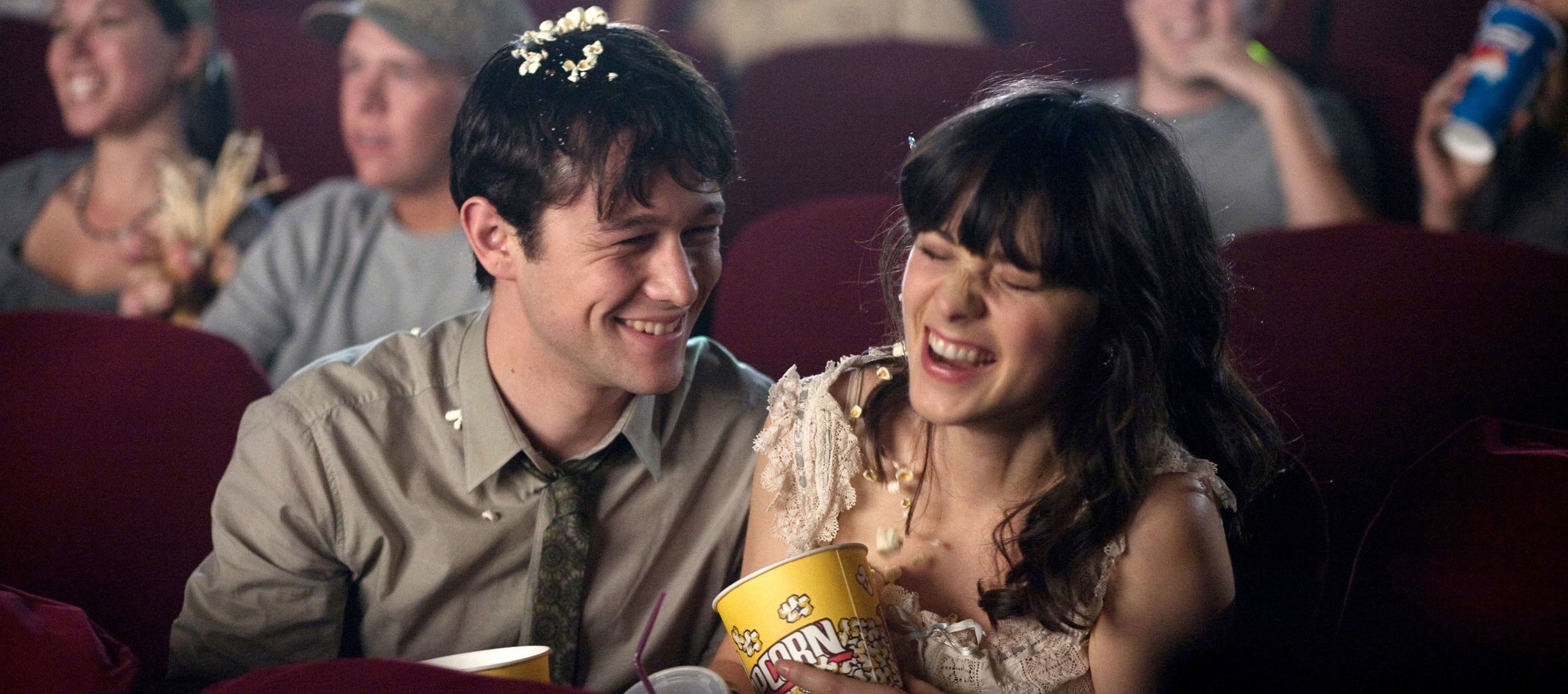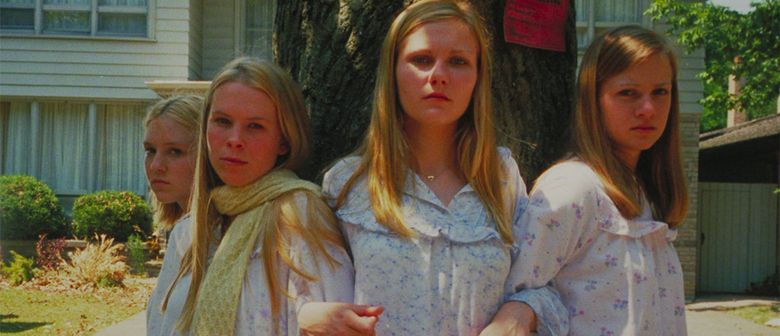MANIC PIXIE DREAM GIRLS
By Holly Chen
Coined by Nathan Rabin in his 2007 review of Elizabethtown, the term 'Manic Pixie Dream Girl' (MPDG) refers to fictional young women who teach their male leads to live and love freely and wildly through their quirky antics and carefree energy. Essentially, these characters exist simply to open the male protagonists' hearts to life's beauty and adventure The Manic Pixie Dream Girl, as Rabin put it, "Exists solely in the fevered imaginations of sensitive writer-directors to teach broodingly soulful young men to embrace life and its infinite mysteries and adventures."
Kirsten Dunst in Elizabethtown
Claire Colburn, Kirsten Dunst's character in Elizabethtown and predecessor of this film trope, inspired its name with her bubbly personality and enchanting, seemingly magical qualities, reminiscent of that of pixies from fantasy realms. As the audience observes Claire's quirky antics, such as coming up with whimsical maps to aid Orlando Bloom's protagonist in finding his way and giving away her number to strangers, one may find Claire's quirky enthusiasm similar to that of characters in several other films. Even prior to Rabin's initial usage of the term, this trope has been planted, knowingly or otherwise, within renowned films. Films of the late 20th century are particularly guilty of this, with some of Hollywood's most famous actresses taking on MPDG roles – Audrey Hepburn's roles in Breakfast at Tiffany's and Roman Holiday and Marilyn Monroe's female lead in The Seven Year Itch are just a few examples.
From 2007 onwards, as the term gained recognition amongst modern cinema filmgoers, more and more films are referred to as possessing this trope and criticised for endowing their female characters with no individual purpose or pursuit other than to bring adventure and happiness to their male leads and, "Save," them from their emotionless, disillusioned outlook on life. Prime 21st-century examples of characters oft-labelled as Manic Pixie Dream Girls are Kate Winslet's heroine, Clementine, in Eternal Sunshine of the Spotless Mind and Zooey Deschanel's character, Summer, in 500 Days of Summer. For those who have not paid attention to the true essence of the female leads, one glance at Clementine's ever-changing hair and spontaneous spirit and Summer's idealisation by the film's male lead is sufficient to pin them for dead ringers of the Manic Pixie Dream Girl.
Kate Winslet in Eternal Sunshine of the Spotless Mind
On the contrary, Clementine and Summer are only two characters who are perceived as embodiments of this trope but, in reality, are intended to subvert it. This subversion of the MPDG trope is effectively summed up through Clementine's line: "Too many guys think I'm a concept, or I complete them, or I'm gonna make them alive. But I'm just a f*cked-up girl who's looking for my own peace of mind; don't assign me yours." Given the film's direct dismissal of the trope, why then do the criticism and false assertions persist?
A significant factor contributing to the false judgements is that these films present the story – and, consequently, the female character – solely from the male character's point of view. What we see of the heroines comes from the male leads' narration. In Eternal Sunshine, we are introduced to Jim Carrey's character, Joel, a cynical and soft-spoken man who finds a connection in Clementine, whose unrestrained personality starkly contrasts his own. As we follow his narration, we are shown his less pleasant commentaries: he refers to Clementine's habits as, "Pathetic," and, "Irresponsible.” He opposes her talkative nature, and asks her if she, "Really [thought she] could take care of a kid". As their clashing personalities begin to result in conflict, Joel grows increasingly irritated and dismisses her as careless and stupid. Consequently, this is also how the audience sees Clementine: careless, one-dimensional, yet free-spirited.
Joseph Gordon-Levitt and Zooey Deschanel in 500 Days of Summer
500 Days of Summer offers a strikingly similar depiction of the relationship between Summer and Tom, Joseph Gordon-Levitt's protagonist. While the film successfully captures a soft, melancholy aesthetic through grey-tinted lighting and scenes embellished by Tom's beautifully romantic monologues, the latter is a subtle nod to Tom's selfish approach to their relationship. There is one monologue in particular:
“I love her smile. I love her hair. I love her knees. I love this heart-shaped birthmark she has on her neck. I love the way she sometimes licks her lips before she talks. I love the sound of her laugh. I love the way she looks when she’s sleeping. I love how she makes me feel.”
Tom loves Summer's facial features, body, laugh, but most importantly, how she makes him feel. Nowhere in the film does he express his love for her as a person. By breaking Summer down into body parts and actions, he essentially turns her into an object whose best quality is that it fills him with happiness and brings meaning and adventure to his life. Sounds familiar?
Sofia Coppola’s The Virgin Suicides
The influence of the heroine's presentation through male perspective and narration on the audience's perception of her is not limited to just these films, however. Even prior to the birth of the trope in 2007, Sofia Coppola's film adaptation of the novel The Virgin Suicides came under scrutiny for romanticising the Lisbon sisters and their deaths. Critics and casual watchers alike criticised the film for portraying the sisters as angelic beings who were fated to die and their deaths as a poetic tragedy, not realising that the entire point is that we are watching the girls' lives through the lens of their neighbours – a few teenage boys – who obsess over yet know little about the girls.
Cara Delevingne in Paper Towns
A more recent example is Cara Delevingne's Margo Roth Spiegelman in the popular adaptation of John Green's young adult novel Paper Towns. This film is perhaps more wrongfully criticised than the former examples as Delevingne's character is on the official Internet list of Manic Pixie Dream Girls in film. While Margo displays what seems to be every MPDG trait in the book, the film ultimately deconstructs the trope through male lead Quentin's line:
"What a treacherous thing it is to believe that a person is more than a person. Margo was not a miracle. She was not an adventurer. She was not some fine, precious thing. She was a girl."
These girls are not Manic Pixie Dream Girls. The men and boys in these films – and even the audience – view them as such, but they are instead subversions of the trope. Some critics claim that if these characters were Manic Pixie Dream Girls, they would eventually have done what made their male leads happy: Summer would have married Tom, Clementine would never have erased Joel from her memory, and Margo would have gone home with Quentin.
Discounting these deconstructions of the trope, there are few films that genuinely and unironically portray Manic Pixie Dream Girls. There are, of course, Marilyn Monroe and Audrey Hepburn's iconic roles, but these are all in films released over half a century ago. Perhaps a more recent – though still 20-year-old – film containing the trope is the indie classic Buffalo'66, in which Christina Ricci plays the beautiful, tap-dancing Layla, who eagerly complies with her kidnap by Vincent Gallo's character and consequently brings out his softer side. The film ends with Gallo's character, a changed man, buying Layla a cookie. One can easily see why this film may be problematic, from Layla's unexplained compliance to the crime to her sympathy for Gallo's lead despite his violence towards her. It is not easy to figure out whether this is a depiction of Stockholm syndrome or simply a case of two outsiders falling in love in spite of circumstances.
So how exactly does knowing this change our perspective of the world around us? While these films and their deconstruction of the MPDG trope generally remind us that there is more to people than we perceive and prompt us to rely on ourselves instead of others to bring happiness and adventure to our own lives, some critics take their criticism to the next level, arguing that these films only serve to support the trope and thus teach women to settle for the supporting role in a man's life. There is no straightforward answer to most of these questions – whether this trope is ultimately sexist, whether these subversive films are calling out filmmakers or the people, whether the fault is with filmography or reality – and it is for us as viewers to address them at our discretion.




